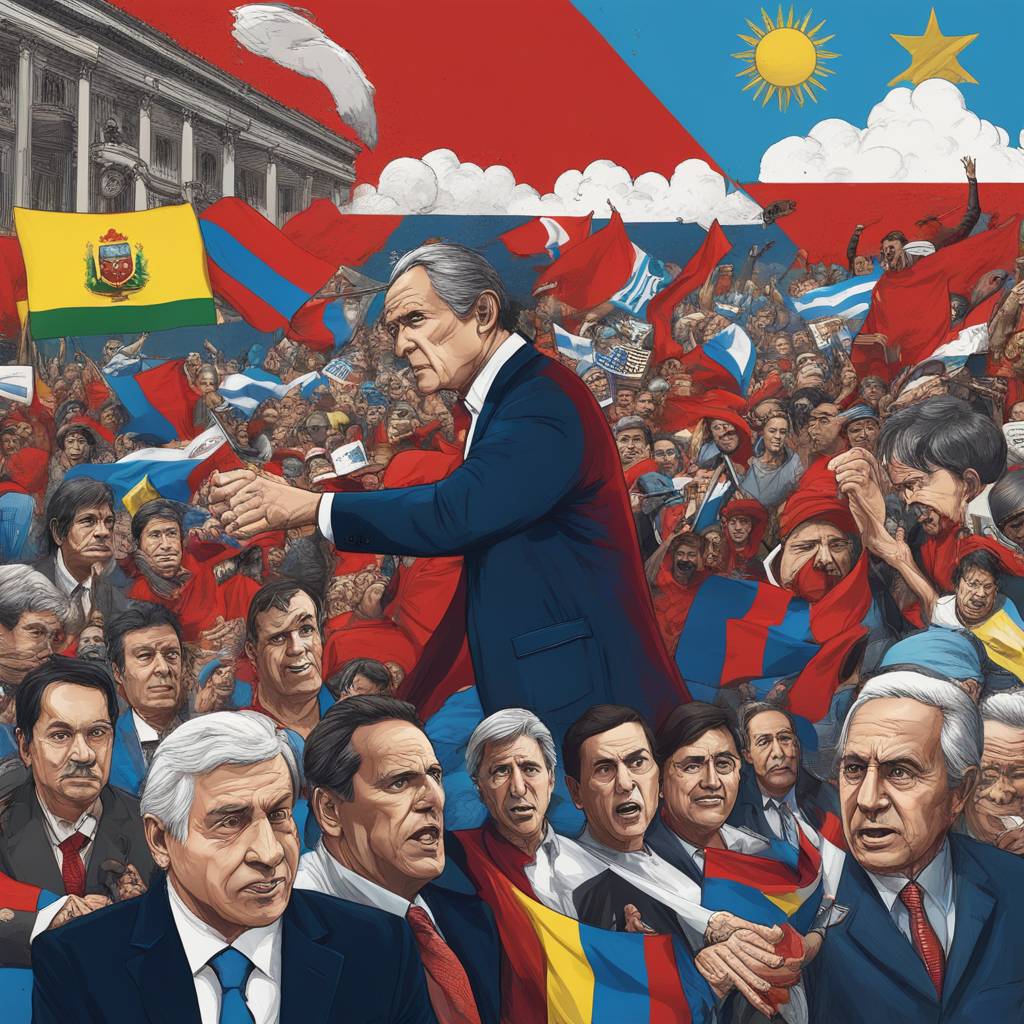Argentina and Colombia have resolved a diplomatic dispute that arose after right-wing Argentine President Javier Milei made derogatory comments about his left-wing Colombian counterpart, President Gustavo Petro. The tensions between the two leaders have been ongoing, with past clashes including Milei calling Petro a “murderous communist” and Petro accusing Milei of isolating Argentina diplomatically and increasing its poverty rate with his libertarian policies. This latest incident began with Milei referring to Petro as a “terrorist murderer” in a CNN interview, prompting Petro to hit back on social media. Despite their ideological differences – with Milei favoring libertarian policies and Petro focusing on social programs for the poor – both leaders came to power promising significant change due to widespread voter dissatisfaction with the status quo.
In a joint statement issued by the foreign ministries of Argentina and Colombia, the two nations expressed their commitment to overcome any differences and strengthen their relationship. As a sign of reconciliation, Colombia announced that it would send back its ambassador who had been summoned from Buenos Aires earlier, and Argentina’s foreign minister would visit Bogotá. Additionally, Colombia backed away from its threat to expel Argentine diplomats and agreed to approve Argentina’s newly appointed ambassador. This diplomatic resolution signifies a willingness to move past the recent conflict and continue fostering cooperation between the two countries.
The conflict between Milei and Petro underscores the deep ideological divisions that exist in Latin America, with Milei representing a right-wing, libertarian stance and Petro advocating for leftist social programs. Both leaders have garnered support by promising radical change to address longstanding issues of poverty and inequality that have plagued their respective countries. Milei, a brash economist and former TV personality, has made controversial statements about Petro, comparing him to Hitler and labeling socialists as “human excrement,” while Petro has accused Milei of harming Argentina’s diplomatic relations and exacerbating poverty with his policies.
Despite their political differences, Milei and Petro share a common thread in their rise to power based on appealing to voters dissatisfied with the traditional political establishment. Petro’s victory in Colombia was fueled by promises of creating social programs to aid the country’s marginalized populations, while Milei’s platform in Argentina focused on cutting government spending, eliminating ministries, and addressing inflation. Both leaders have tapped into the frustration of their respective populations with governments that have failed to address entrenched social and economic challenges, leading to their rapid ascent to power.
The resolution of the diplomatic spat between Argentina and Colombia signals a willingness to move forward and strengthen their relationship despite the sharp differences between Milei and Petro. By agreeing to restore diplomatic ties and approve new appointments, both countries have shown a commitment to working together and avoiding further escalation of tensions. The ongoing conflicts between the two leaders highlight the broader ideological divisions in Latin America and the diverse approaches to addressing social and economic issues. As Milei and Petro navigate their respective leadership roles, their ability to cooperate and find common ground will be key to advancing the interests of their countries and promoting regional stability.


